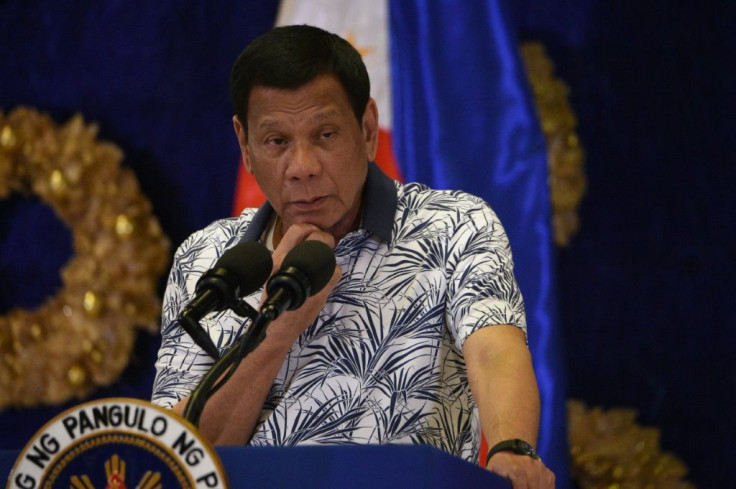Philippines To Send Navy Ships If China Drills In South China Sea: ‘It Will Be Bloody’
KEY POINTS
- Duterte warned of bloodshed once the Philippines asserts its jurisdiction
- He had often been criticized for his friendly approach to Beijing
- He had set aside the 2016 arbitration ruling against China after assuming office
As China drills deep into the hydrocarbon-rich South China Sea, the Philippines has come out with a stern warning that it would send military ships to “stake a claim” over oil and mineral resources in the disputed part of the strategic waterway.
“If we go there to assert our jurisdiction, it will be bloody,” Philippine President Rodrigo Duterte said Monday, his first response since tensions escalated in the South China Sea after Chinese ships lined up at a disputed reef in March, reported Reuters.
"I'm not so much interested now in fishing. I don't think there's enough fish to quarrel about. But when we start to mine, when we start to get whatever it is in the bowels of the China Sea, our oil, by that time I will send my grey ships there to stake a claim," Duterte said.
"If they start drilling oil there, I will tell China, is that part of our agreement? If that is not part of our agreement, I will also drill oil there," he added. “If they get the oil, that would be time that we should act on it.”
Duterte had often been criticized for his refusal to push Beijing to comply with the 2016 arbitration ruling. He had earlier said that the Philippines was powerless to stop China, and that challenging its activities could risk a war his country would lose.
The arbitration was filed in February 2013 by the Philippines under the then-president Benigno Aquino III. Three years later, the judgment by an international tribunal in The Hague said there was no legal basis for China to claim historical rights to resources within the sea areas falling within the ‘nine-dash line.'
China had dismissed the ruling as a "sham," saying its "territorial sovereignty and marine rights" in the seas would not be affected by the ruling.
Duterte, however, went soft on China, since he assumed office in 2016. During a visit to Beijing, he called the judgment a "piece of paper," adding that the ruling will “take the back seat”. He hoped to forge commercial alliances with China, eyeing billions as Chinese investments.
But, much of that promised investment failed to materialize and Duterte, to the surprise of many, brought up the arbitration in 2020 during his first address before the annual U.N. General Assembly.
“The award is now part of international law, beyond compromise and beyond the reach of passing governments to dilute, diminish or abandon,” Duterte said, without naming China. “We firmly reject attempts to undermine it.”
Relations between Beijing and Manila worsened after more than 200 Chinese boats were spotted on March 7 at the disputed Whitsun Reef. Manila called on Beijing to withdraw the "maritime militia" vessels, saying their incursion into the Philippines' exclusive economic zone was unlawful.

© Copyright IBTimes 2024. All rights reserved.





















